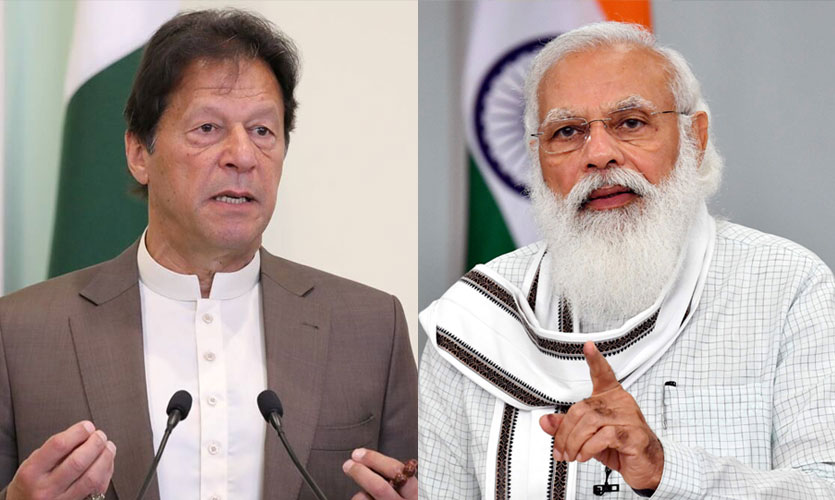After Imran Khan’s remarks at the United Nations General Assembly (UNGA), India responded saying that Pakistan has a documented history of harbouring, helping, and actively supporting terrorism. Despite housing the largest number of terrorists sanctioned by the United Nations Security Council (UNSC), Pakistan has nevertheless glorified them as “martyrs”. First Secretary Sneha Dubey expressed this sentiment on India’s behalf at the UNGA on Friday.
Pakistan’s Take
Pakistani Prime Minister Imran Khan spoke on climate change, worldwide Islamophobia, and corruption, which he linked to the East India Company’s exploitation of India, in a prerecorded address shown that evening. In his speech, Imran Khan mentioned the death of the pro-Pakistani, separatist leader Syed Ali Shah Geelani, and India’s decision to abrogate Article 370 and abolish Jammu and Kashmir’s special status.
He saved his toughest comments for India’s government, once again describing Prime Minister Narendra Modi’s regime as “fascist”. However, he was angry and mournful in his portrayal of the US as an abandoner of Pakistan and neighbouring Afghanistan. He attempted to portray Pakistan as a victim of America’s ungratefulness and double standards.
“For the current situation in Afghanistan, for some reason, Pakistan has been blamed for the turn of events by politicians in the United States and some politicians in Europe,” said Khan, as per LiveMint. He continued, “From this platform, I want them all to know, the country that suffered the most, apart from Afghanistan, was Pakistan when we joined the US war on terror after 9/11.”
He began his story by saying that during the Soviet occupation of Afghanistan, the US and Pakistan trained Mujahideen forces, who were viewed as heroes by people like then-President Ronald Reagan. Khan claimed that when the Soviets and Americans withdrew in 1989, Pakistan was left to pick up the pieces – millions of refugees and new sectarian terrorist organisations. According to Khan, the US sanctioned its former partner a year later, but then came calling again after the tragedy of 9/11. He said that Pakistan’s help to the US cost 80,000 Pakistanis their lives and fostered internal turmoil and opposition against the government, all while the US carried out drone attacks.
“So, when we hear this at the end. There is a lot of worry in the US about taking care of the interpreters and everyone who helped the US,” he said, referring to Afghanistan. “What about us,” he questioned.
India’s Take
Immediately following Imran Khan’s speech on the Kashmir conflict at the high-level UNGA meeting, India asked Pakistan to vacate Pakistan-occupied Kashmir (PoK) immediately. First Secretary Sneha Dubey while exercising India’s Right to Reply slammed Pakistan for internationalising the issue of Kashmir. She claimed that Islamabad has actively supported terrorists for decades. Dubey said that Pakistan is “an arsonist disguising itself as a firefighter”, and the entire world has suffered because of its policies as Pakistan nurtures terrorists in its backyard.
“Regrettably, this is not the first time the leader of Pakistan has misused platforms provided by the UN to propagate false and malicious propaganda against my country, and seeking in vain to divert the world’s attention from the sad state of his country where terrorists enjoy free pass while the lives of ordinary people, especially those belonging to the minority communities, are turned upside down,” stated Dubey.
“Member States are aware that Pakistan has an established history and policy of harbouring, aiding and actively supporting terrorists. This is a country that has been globally recognised as one openly supporting, training, financing and arming terrorists as a matter of state policy. It holds the ignoble record of hosting the largest number of terrorists proscribed by the UN Security Council,” Dubey added.
She said that unlike Pakistan, India has an independent judiciary and a free media who make sure that our Constitution is upheld. “Pluralism is a concept which is very difficult to understand for Pakistan, which constitutionally prohibits its minorities from aspiring for high offices of the State. The least they could do is introspect before exposing themselves to ridicule on the world stage,” she added.
Meanwhile, in his address to the UNGA on Saturday, Prime Minister Narendra Modi took aim at Pakistan, reminding Islamabad that people who use terrorism as a political tool against others must recognise that it is a threat to them as well. He also spoke out against expansionism and exclusionism in the seas, which he characterised as the lifelines of global trade, and asked all governments to speak out against it in his 22-minute address. The remark might be seen as a reference to China’s efforts to claim the South China Sea as its unilateral territory.
Read more: Pakistan’s Terror Links Dominate Bilateral Talks Between Kamala Harris And PM Modi
India accused Pakistan of fomenting terrorism against the country. Pakistan denies this charge. PM Modi commented that countries with “regressive thinking” have to realise that terrorism also represents an “equally big threat” for them. The prime minister urged countries not to take advantage of the delicate situation in Afghanistan for their own selfish ends.
“Today, the world is facing an increased threat of regressive thinking and extremism. In such a situation, the entire world must make science-based, rational and progressive thinking the basis for development. In order to strengthen a science-based approach, India is promoting experience-based learning,” he told the UNGA.
Modi shared his concerns about Pakistan with US President Joe Biden, Australian Prime Minister Scott Morrison and Japanese Prime Minister Yoshihide Suga during the Quad summit, according to Indian officials, who said that the others were in agreement. “There was a clear sense that a more careful look and a more careful examination and monitoring of Pakistan’s role in Afghanistan – Pakistan’s role on the issue of terrorism – had to be kept,” Foreign Secretary Harsh Vardhan Shringla told reporters after the White House talks.










